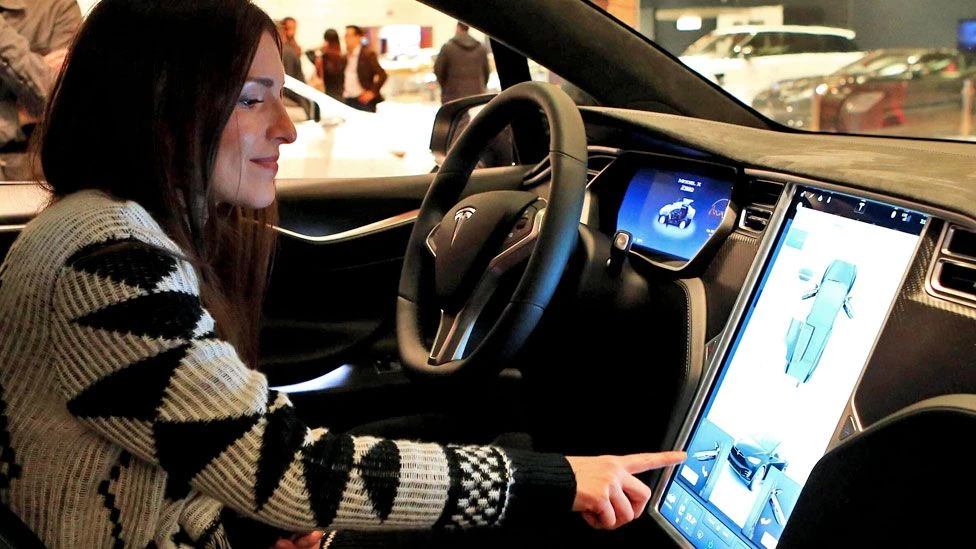Driverless Cars: The Future of UK Motorways by 2026
Driverless cars are not just the stuff of science fiction anymore. According to Mark Harper, UK’s transport secretary, this advanced technology could become a reality on the country’s motorways as soon as 2026. Harper expressed his confidence in the viability of this initiative, stating that he has personally witnessed the technology and believes it will be “gradually” introduced to the public.
The Promise of Driverless Cars
The emergence of driverless cars represents a monumental shift in the transportation industry. This game-changing innovation has the potential to redefine the way people commute, travel, and even conduct business. With the promise of increased safety, enhanced convenience, and reduced traffic congestion, driverless cars have the power to revolutionize the automotive landscape.
Impacts and Implications
Amidst the promise of the potential benefits, the introduction of driverless cars will undoubtedly trigger a multitude of impacts and implications. This transition towards autonomous vehicles has the potential to reshape urban planning, infrastructure, and traffic management. Moreover, it could have far-reaching consequences for the jobs market, insurance industry, and legal framework surrounding road accidents and liability.
Challenges and Considerations
While the prospect of driverless cars holds immense potential, it is crucial to recognize and address the associated challenges and considerations. Safety concerns, technological reliability, public acceptance, and legal regulations represent critical hurdles that must be overcome. Additionally, questions regarding cybersecurity and data privacy in an interconnected automotive ecosystem demand careful attention.
Progress and Development
The journey towards the widespread adoption of driverless cars in the UK is a complex process that involves concerted efforts from various stakeholders. Technological advancements, rigorous testing, and collaborative research initiatives are pivotal components in shaping the future of autonomous transportation. Furthermore, the incorporation of artificial intelligence, machine learning, and sensor technologies plays a central role in steering this transformation.
Infrastructure and Integration
For driverless cars to thrive on UK motorways, the infrastructure and integration requirements are paramount. The development of smart highways, seamless communication networks, and robust support systems is essential to facilitate the safe and efficient operation of autonomous vehicles. Additionally, the coordination between public and private sectors is pivotal in establishing a cohesive framework for the integration of driverless cars into the existing transportation ecosystem.
Public Perception and Acceptance
As with any cutting-edge technology, the acceptance of driverless cars among the general public is a critical factor in their widespread adoption. Educating and engaging individuals about the benefits and safety features of autonomous vehicles is essential in fostering a positive perception. Building trust and transparency in the development and deployment of this technology is a fundamental aspect of ensuring public acceptance and support.
Regulatory Framework and Legislation
The introduction of driverless cars necessitates a comprehensive regulatory framework and legislation that addresses the unique challenges and implications of autonomous transportation. Policymakers and government bodies must collaborate to establish clear guidelines, standards, and protocols governing the operation, testing, and certification of driverless cars. Additionally, addressing liability issues, insurance requirements, and ethical considerations is crucial in ensuring a seamless integration of this technology.
Economic and Environmental Considerations
The potential economic and environmental impacts of driverless cars cannot be understated. From reduced road accidents and enhanced traffic flow to potential changes in car ownership patterns, this transformative technology has the capacity to reshape economic dynamics and sustainability in the transportation sector. Furthermore, the transition towards electric and autonomous vehicles presents opportunities for reducing greenhouse gas emissions and mitigating the environmental impact of traditional combustion engine cars.
Towards a New Era of Mobility
The prospect of driverless cars becoming a reality on UK motorways by 2026 heralds a new era of mobility and transportation. Embracing the transformative power of autonomous vehicles requires a multi-faceted approach that encompasses technological innovation, regulatory adaptation, public engagement, and infrastructure readiness. As the UK prepares for the advent of driverless cars, collective efforts from industry leaders, policymakers, and the public are indispensable in shaping a future where autonomous transportation becomes an integral part of everyday life.
Source: bbc








No Comments